I’d watched the following video a month or two ago; it talks about freeze-drying eggs, something I’m beginning to know all too well. But about halfway through it also discusses water glassing eggs, something I’ve never tried before. Note: I’ve started the video at the point where he discusses water glassing, if you’d like to watch it:
Now, I have experimented about a decade ago with coating store-bought eggs with mineral oil, and it worked out much better than I’d expected. I tested one egg each week for 18 weeks, as I recall, to see whether they were both viable and edible. Truth be told, even the uncoated store-bought eggs were viable for at least a month. The mineral coated eggs lasted at least 18 weeks (I ran out of eggs to test).
But what about water glassing? Whereas mineral oil can keep eggs viable for several months, eggs that have been water glassed may be viable for nearly twice as long. So, I figured I would try it.
The basics are these:
- Eggs must be free of contaminants (e.g., dirt, poop) and not cracked
- Eggs must still have their bloom (means you can’t wash them first)
- Place eggs in a clean container, such as a mason jar
- Mix 1 ounce of pickling lime with 1 quart of water (mix more as needed)
- Pour water mixture into container, covering eggs at least two inches above eggs
- Date the jar when they were water glassed
- (optional) Get someone else to test the water glassed eggs first just in case they went bad
Note: A safer way to test eggs is to place an egg into a glass of water. The egg is good to eat if it sinks, questionable if it stands on end but probably okay, and no good if it floats.
After I’d watched the video referenced above, I purchased six bags of pickling lime since this was yet another easy way to preserve eggs for SHTF purposes, though I may have gone a bit overboard:
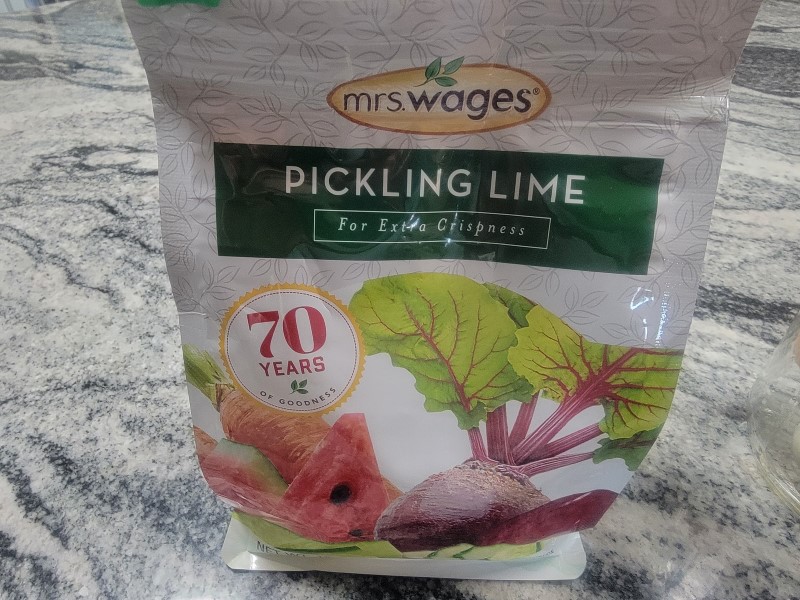
I then found 12 fresh eggs that appeared relatively clean and not cracked, and placed them in two quart mason jars:
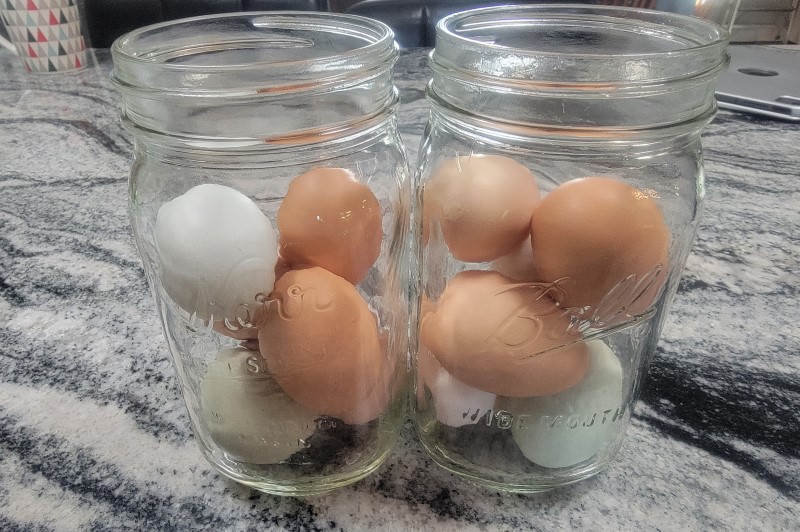
I probably could’ve fit one or two more eggs in each jar, but I had to remember to keep some space to completely cover the eggs with the lime mixture, as noted above.
Speaking of which, I mixed one ounce of pickling lime to one quart of water:
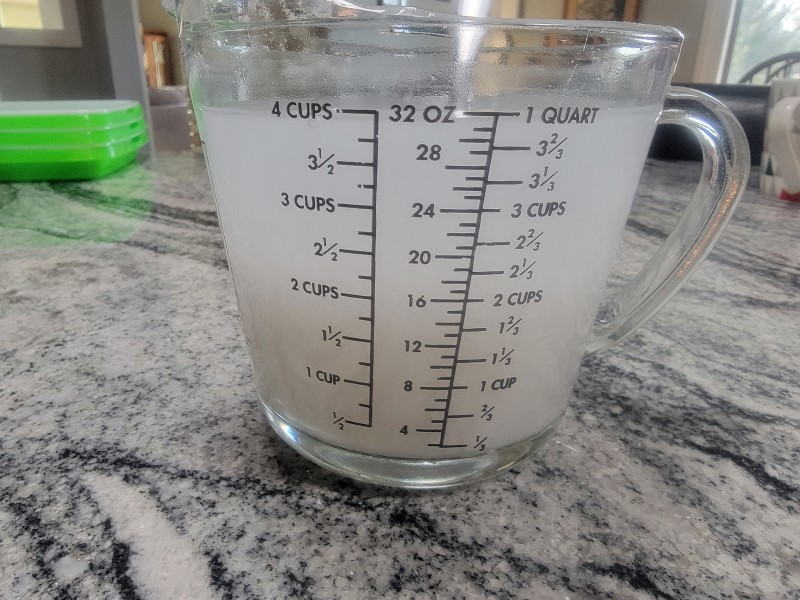
I noticed the mix was trying to separate, so I kept stirring as I poured the mixture into the mason jars, but it didn’t seem to matter much as the mixture continued to separate to an extent; you can see the powder settling on the bottom of the jars:
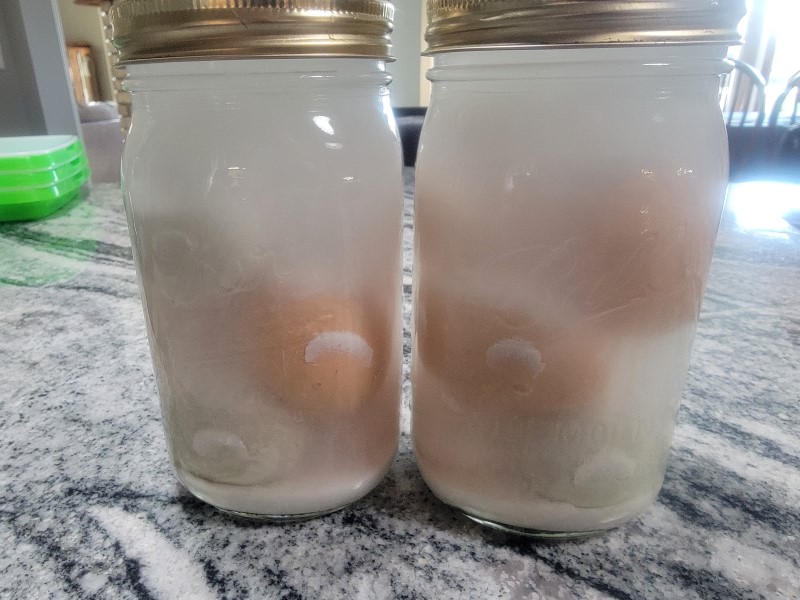
Fifteen minutes later, and the settling was even more pronounced. I guess that’s not a problem?
Anyway, it turns out that one quart would’ve been just right to fill both jars, but I managed to spill some as I was pouring, so I had to mix up a bit more. I eyeballed it this time, so there’s no telling if I got it right or not. Hmmm…. seems like a good reason to have my wife try these eggs first. 🙂
Finally, I dated the lid with today’s date, labeled them as “eggs” just in case anybody was wondering, and noted they were “good for 12 months” so I didn’t forget.
At some point I’ll have to try the eggs and see if they stayed edible or not. Somebody remind me to do that in about six months, lol.
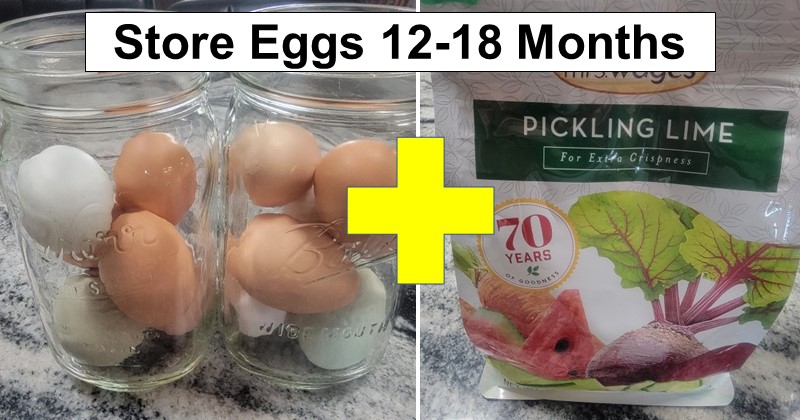
Leave a Reply